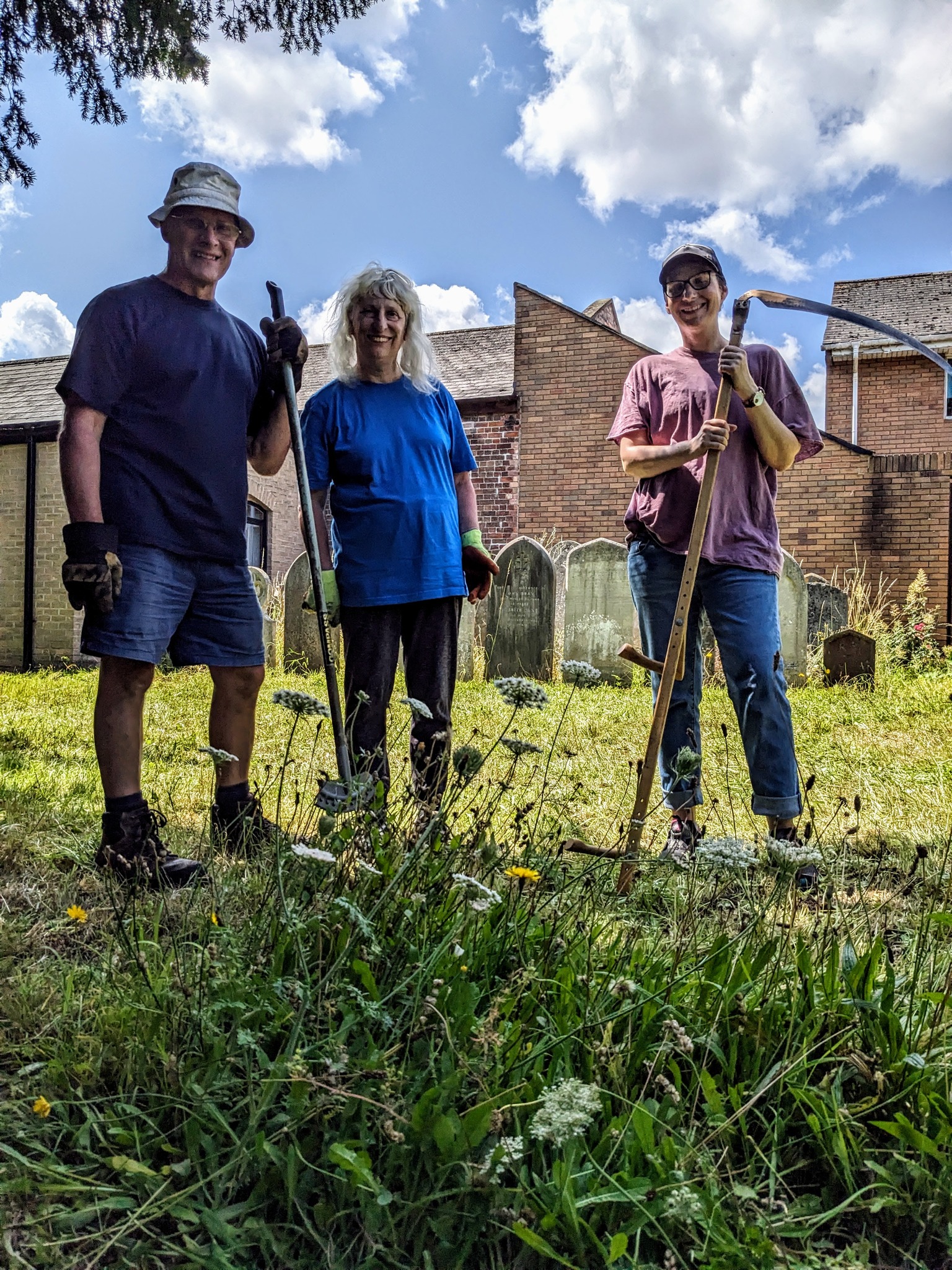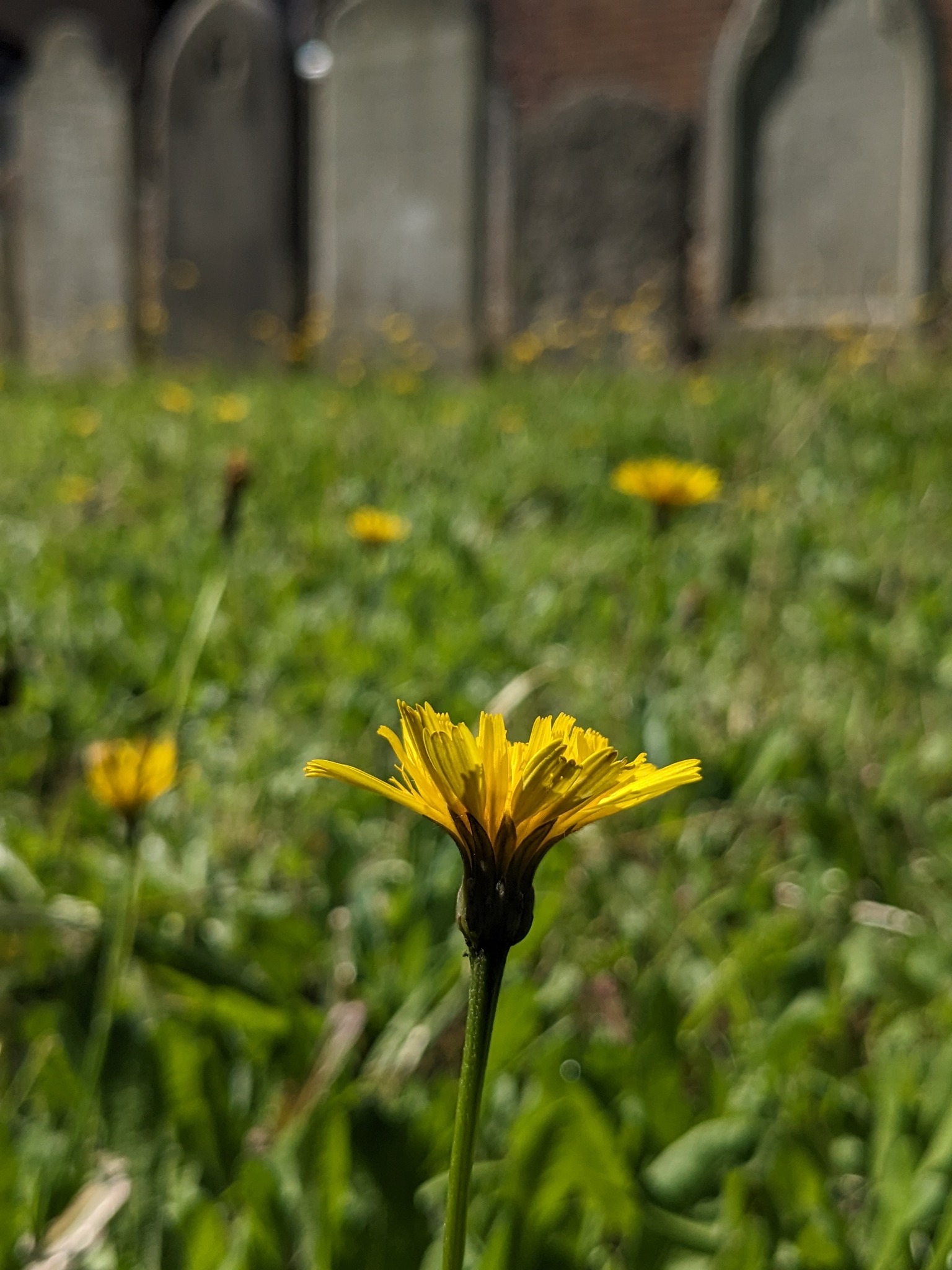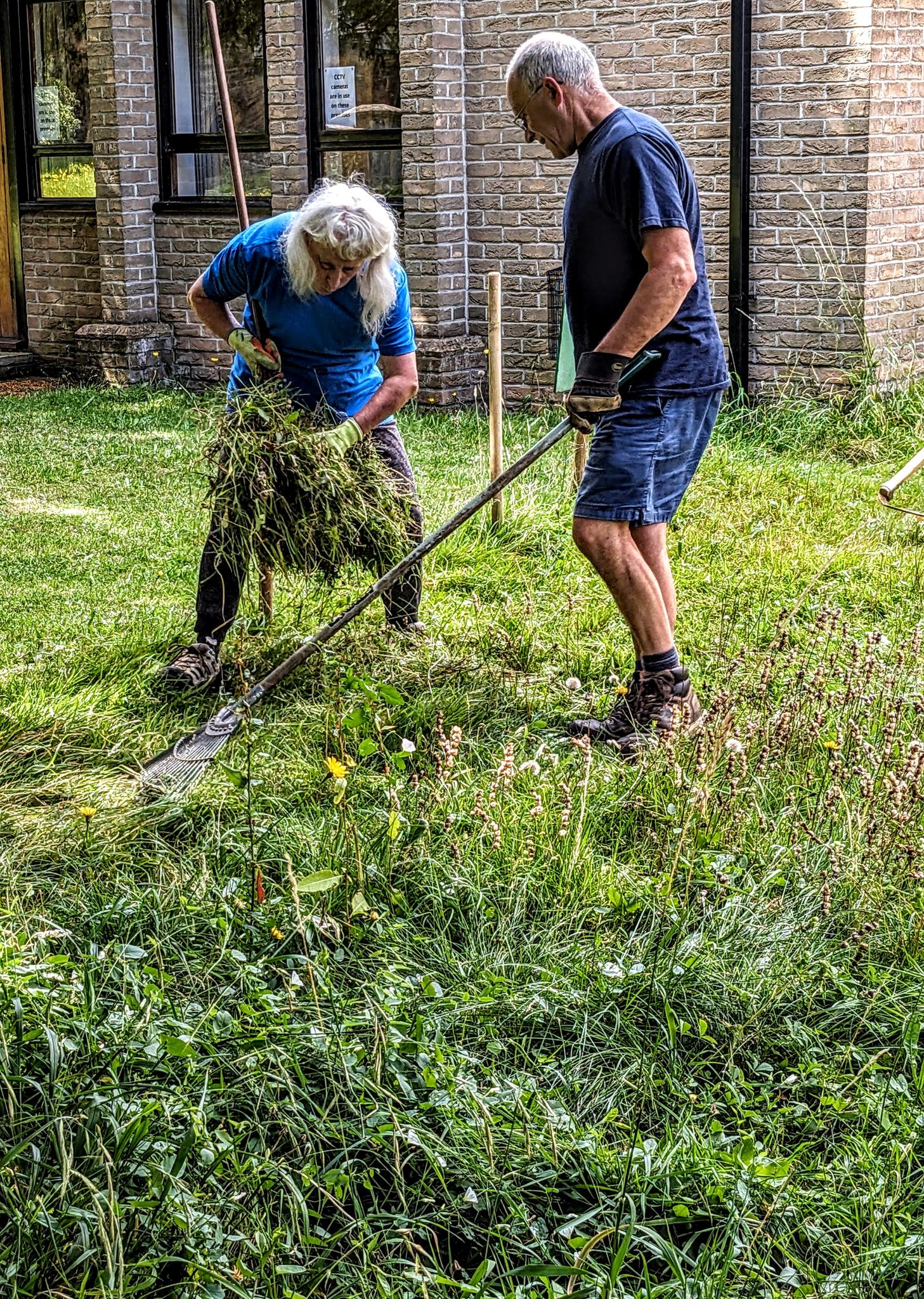
St James’s church in Taunton has seen wildflowers such as cowslips, wild carrot, knapweed, and Ox-eye daisies, for the first time since they took the decision to ‘rewild’ part of the churchyard. It is four years since they sowed a native meadow mix on land set aside to foster biodiversity and create a thriving habitat for a variety of flora and fauna.
It is a commitment by the whole church community to take better care of God’s creation by recognising the urgent need to conserve our biodiversity. The transformation of the churchyard involved a deliberate and strategic shift from meticulously maintaining the grass outside the church, to embracing a wilder, more natural landscape.
The project has been initiated and guided by a team of volunteers, but it has also enjoyed the support of everyone in the church, local community and the local school. In the summer a prayer trail through the meadow offered people opportunities to pause, consider and pray. Those attending a Quiet Day spent time in the churchyard explored the prayer trail, labyrinth and prayer stations. Members of the Children’s Church helped collect wildflower seeds which were then sorted ready for replanting by St James’s Homegroup members and Year 6 school leavers created wildlife-friendly bug houses.
Sue Carpenter who helps lead the Wilder Churches group at St James’s said, “We even had a visit from ‘Britain in Bloom’ judges as part of Taunton’s bid. Environmental responsibility and community participation are part of their assessments these days. The Parks and Open Spaces team wanted to show how they are managing our mowing and also our eco-friendly changes.”
Scything the land is one of the more unusual things the St James’s community has committed to. Good grassland management supports rich biodiverse meadows. Maintaining the wildflower meadow in this way encourages pollinators, birds and insects to return and flourish. Sue Carpenter said, “Hester, our local scything hero, came once again. Hester’s other expertise came in handy when we saw a couple of less common insects: a Longhorn beetle and a parasitoid Javelin wasp! Our morning's work was accompanied by many busy goldcrests in the Yew tree branches above us.”
The rewilding is an example of St James’s church community’s determination to be responsible stewards of God’s earth. It is a reminder that through small acts of stewardship we can collectively make a significant impact on our planet’s health.
Resources and guidance about encouraging biodiversity in your churchyard are available on the Church of England website. Look out for the Wilder Churches webinars which the diocese supports jointly with Somerset Wildlife Trust. They offer support, tips and advice. Or contact Sara Emmet, Bath and Wells Climate Justice & Environment Adviser. Email sara.emmett@bathwells.anglican.org


